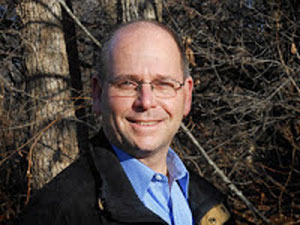|
Interview with Myles Gordon
by Ayla Zuraw-Friedland

Give us a quick Bio. Where did you grow up?
I grew up in Milton, Massachusetts until I was 13, then moved to Newton, Massachusetts.
I went to UMass, Amherst for college, and aside from a few stints and trips elsewhere, I've
been in Massachusetts most of the time.
Who has been your greatest influence as a writer?
I would say, first off, my father was my greatest influence as a writer. He was a newspaper editor from
the old school. He grew up in Boston, and dropped out of school when he was 15 to become a "newspaper boy,"
then later a boxing, horse race writer, then sports editor. He edited many sections of his paper
(the old Record American/Herald Traveler) in a fifty year career.
My second biggest influence has been Kathleen Spivack, a very important writer who mentored me for many years.
What inspired you to use the form of a sonnet
in "Until it Does Us In?" Talk a little bit about what got you started on this project.
I used the sonnet form because it worked for me. "Until It Does Us In" is highly, emotionally charged,
and the discipline of the sonnet allows me to contain and channel the motion. Otherwise it would be too
unwieldy. I got started on this project speculating about the impact of the Holocaust generations after
it occurred. Most of my mother's family was killed in the Holocaust, and my father was a Jewish soldier
in an army unit that liberated concentration camps. The stories I heard from them and the trauma I felt
from them still affect me, even though the Holocaust took place 70 years ago. "Until it Does Us In," in part,
deals with that trauma and those stories, and the fact that it all still impacts people generations later.
What led your decision to go in to teaching after your work with Channel 5?
Does the experience of being a teacher influence your writing? What has been
your favorite part of teaching?
My favorite part of teaching is the students, and making the change was the right thing for me to do at the time.
How has your family's relationship to the Holocaust,
being "survivors" or people that managed to just barely escape,
influenced your writing? Do you approach the topic in other works?
My family's relationship to the Holocaust influences my writing greatly, even if it's not an overt
topic in a piece of writing. Sometimes I wake up at night and image comes to me of my mother's
grandparents and other family members being marched from their village in Poland to open pits where
they were forced to lie down and shot. Sometimes that image will just pop into my head during the day.
Then I look at the people around me, or whatever I'm doing and everything is just... different.
The world becomes a bit of a tragic, farcical mirage. One reviewer, I think erroneously, describes
that component of my work as "existential." I don't think it is. I think that's a cop out to say that.
There are things people want to tune out of this world, that other people can't. I have this belief
that if more people came to terms that horrendous things happen, like the Holocaust, and that
they're perpetrated by ordinary people such as you and I, this awareness perhaps will give us
more empathy towards each other. I don't know. On the other hand, I don't have some mission or
belief that my writing can "change the world," or help anyone, or anything like that.
The Holocaust experience is embedded in me and so I write about it - maybe it's as
basic as that.
Where is your favorite place to write?
That's a great question! I have no favorite place to write. Writing is elusive and doesn't
often cooperate. So whenever writing cooperates - that's the place to be.
How do you feel your writing process or writing in general has evolved through your career changes?
I don't know. I am kind of superstitious about writing. If I write something successfully in some phase
of life that ends, I worry that I won't be able to do so in a new phase - until I do and then
it's okay. I don't know where writing "comes from" or what external factors play into it. It's
just something that has always happened.
What are you reading over summer break?
I don't have anything particularly planned. I have a big book case with lots
of books and i often just grab something randomly and start reading.
Do you have any advice for new writers?
Have fun writing. It's serious and it isn't. Poets - don't be self conscious about what you
write because no one is going to read it anyway (I speak from personal experience).
Writing is important. Writing isn't important. Believe in yourself. Definitely believe in
yourself. Find a solid mentor.
READ LOTS OF THINGS BY OTHER PEOPLE - THIS WILL MAKE YOUR OWN WRITING MORE INTERESTING!!!!
If you can afford it, buy books - this is good karma and maybe someday someone will buy
your book. The creative enhancement of drinking or recreational drug taking on writing is
grossly over rated. The best writing is done sober, with a level head. Experiment.
EXPERIMENT. Get enough exercise. Writing is a truly wonderful gift to yourself, so
protect yourself from those who would discourage you - find supportive folks who will
read your work and smile. Become a supportive person to other writers - it will come back to you,
positively. Eat well. Dream well. WRITE ALL THE TIME!!!

|

